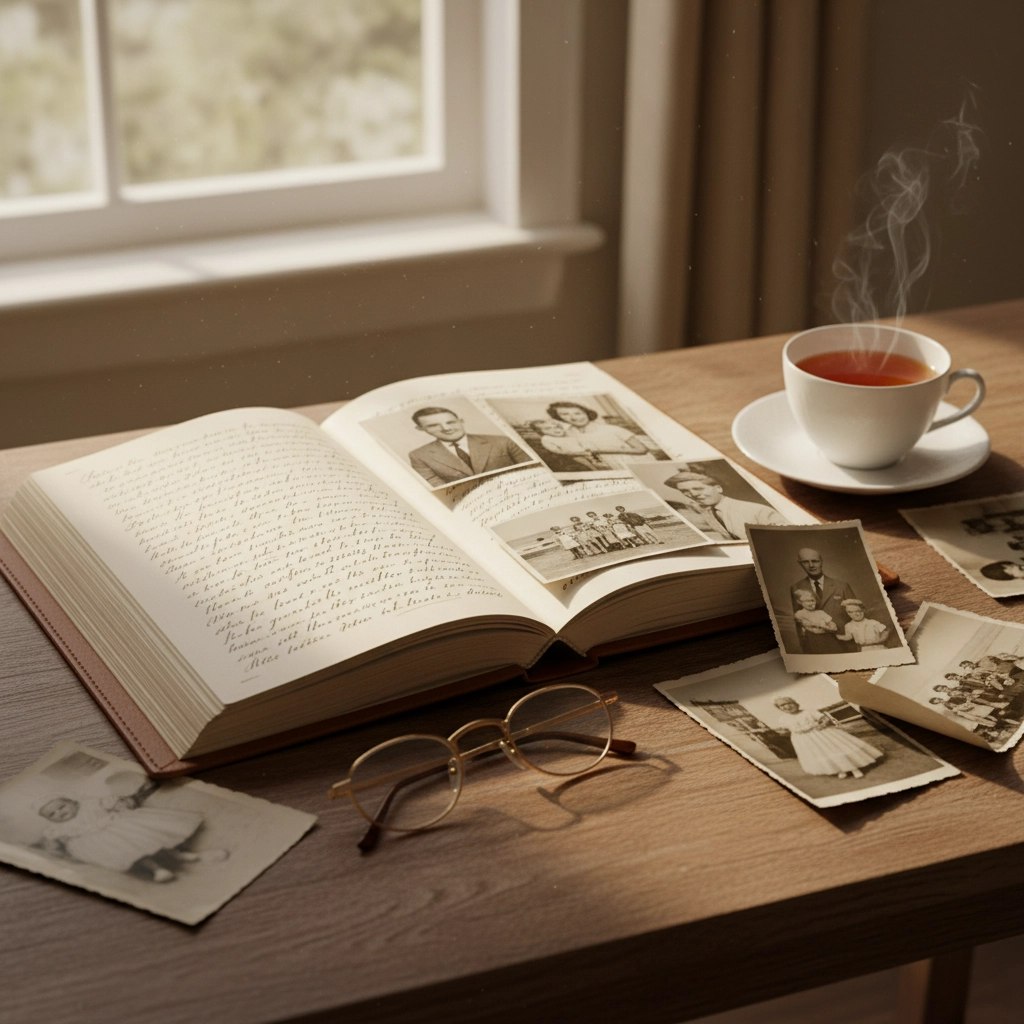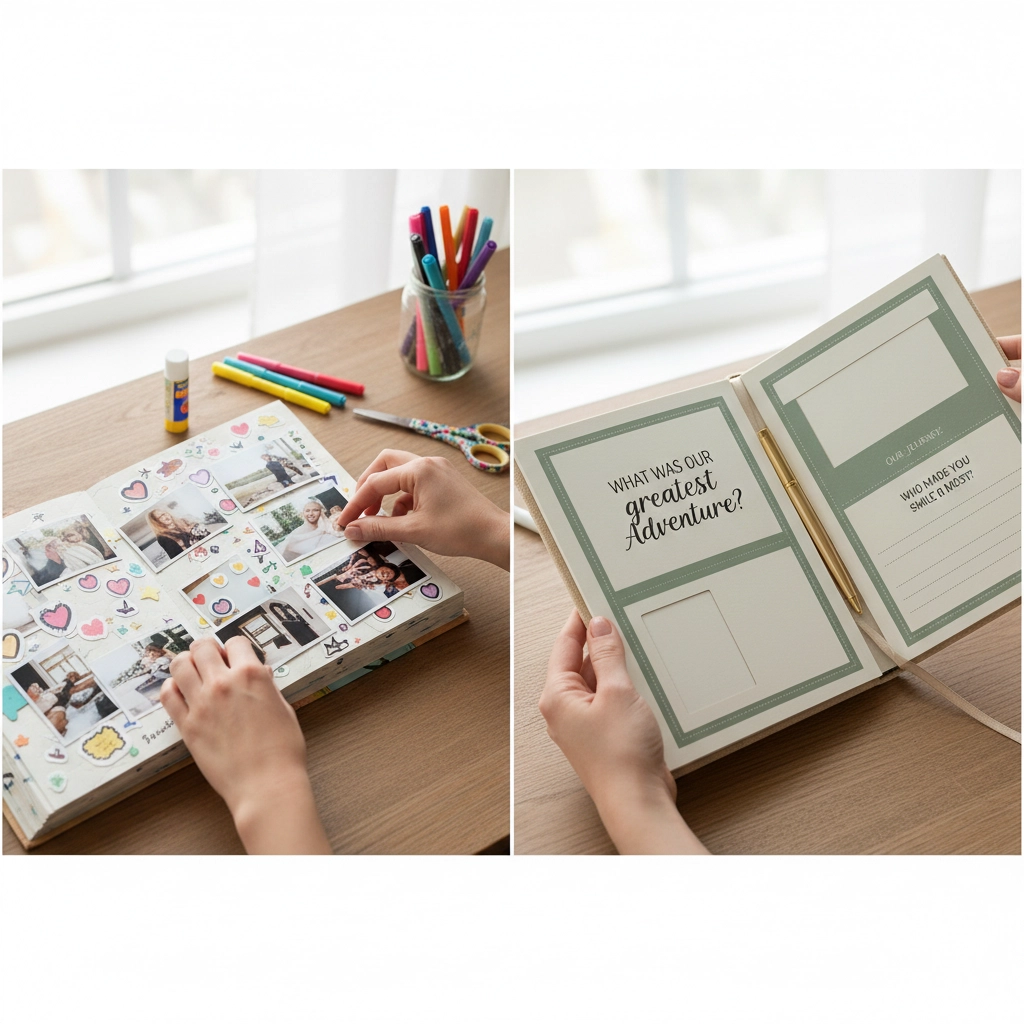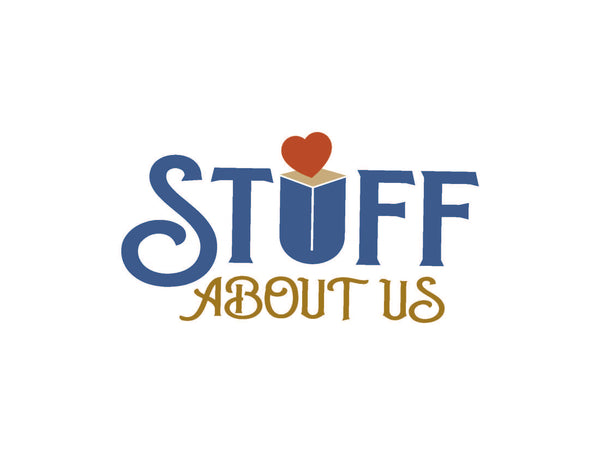
When it comes to preserving precious family memories, you've got choices. Should you go with a traditional photo album where you slip in printed photos, or invest in a parents memory book that combines life stories with pictures? It's a question many families face when they want to create something special for mom, dad, or the whole family.
Let's dive into what makes each option unique and help you figure out which one will best capture and preserve your family's story for years to come.
What Exactly Is a Parents Memory Book?
A parents memory book is way more than just a place to stick photos. These are specially designed keepsake books that include thoughtful questions about your parent's life alongside plenty of space for photos and memories. Think of it as part autobiography, part photo album, and part family treasure.
The best parents memory books guide you through capturing the important stuff - childhood memories, family traditions, life lessons, funny stories, and those "you never knew that about mom!" moments. They're designed to help your parents reflect on their journey while creating something meaningful the whole family can cherish.
Traditional Photo Albums: The Classic Approach
Regular photo albums are pretty straightforward. You've got your slip-in style albums with plastic pockets for standard-sized photos, or scrapbook-style albums where you mount photos with adhesive and can add decorations, stickers, and handwritten notes.
There's definitely something nostalgic and hands-on about flipping through physical photos in a traditional album. Many people love the tactile experience and the creative freedom to arrange things exactly how they want.

The Big Differences: What Sets Them Apart
Storytelling Power
Here's where parents memory books really shine. While a regular photo album shows you what happened, a memory book tells you the whole story - the who, what, when, where, and most importantly, the why behind those moments.
When your mom fills out questions like "What was your favorite family tradition growing up?" or "What's the best advice you ever received?" alongside photos from those times, you're getting context that a regular album just can't provide. Years from now, those stories will be just as precious as the photos themselves.
Ease of Creation
Traditional albums require you to print photos, buy the album, and spend time physically arranging everything. With a parents memory book, the structure is already there - the questions guide the storytelling process, making it easier for your parents to know where to start and what to include.
Long-term Preservation
Both options can last for years, but they preserve memories differently. Photo albums focus on preserving the physical photos, while memory books preserve both visual memories and the stories behind them. When family members inherit these books decades later, they'll have a much richer understanding of their family history.
Breaking Down the Pros and Cons
Parents Memory Book Advantages
Rich storytelling: The combination of guided questions and photo spaces creates a complete picture of someone's life, not just snapshots of moments.
Easy to start: The prompts help overcome that "blank page" feeling that stops many people from beginning memory projects.
Generational value: Future family members will understand not just what happened, but what it meant to the person who lived it.
Professional presentation: Most memory books are designed to look polished and beautiful on a bookshelf.
Guided experience: Perfect for parents who want to share their stories but don't know where to begin.
Parents Memory Book Disadvantages
Less creative flexibility: You're working within a structured format rather than having complete creative freedom.
Requires writing: Some parents might feel intimidated by filling out written responses, even though the questions make it easier.
Higher cost: Quality memory books typically cost more upfront than basic photo albums.
Traditional Photo Album Advantages
Complete creative control: You can arrange, decorate, and organize however you want.
Hands-on experience: Many people find the physical process of creating an album relaxing and enjoyable.
Lower upfront cost: Basic albums are pretty affordable to get started.
Familiar format: Older generations especially appreciate the traditional approach.
Immediate gratification: You can start adding photos as soon as you buy the album.
Traditional Photo Album Disadvantages
Limited storytelling: Photos alone don't capture the full context or meaning behind moments.
Time-intensive: Printing photos, arranging layouts, and decorating takes considerable time.
Storage challenges: Albums can get bulky, and creating duplicates for multiple family members is impractical.
Missing context: Without written stories, future generations might not understand the significance of certain photos.

Which Option Is Right for Your Family?
Choose a Parents Memory Book If:
You want to capture not just what your parents looked like at different stages of life, but who they were and what mattered to them. This is ideal if your parents have rich stories to tell and you want to preserve their wisdom, humor, and life experiences for future generations.
Memory books are perfect for families who recognize that photos are wonderful, but stories are irreplaceable. If you've ever looked at an old family photo and wished you knew more about the people in it or the circumstances when it was taken, a memory book solves that problem.
They're also great if your parents sometimes feel overwhelmed by the idea of organizing decades of photos. The structured format with specific questions makes the process much more manageable.
Choose a Traditional Photo Album If:
You or your parents love hands-on creative projects and want complete control over how memories are presented. If the process of selecting, printing, and arranging photos is something your family enjoys doing together, a traditional album might be the better choice.
Albums work well if you have a specific collection of photos from a particular event, trip, or time period that you want to showcase. They're also good if budget is a major consideration and you want to start preserving memories without a big upfront investment.
Why Not Both?
Here's a thought - these options aren't mutually exclusive. Some families create a parents memory book as the main keepsake that tells the complete life story, then supplement it with smaller photo albums for specific events or time periods.
You could also start with a memory book to capture the big picture stories, then encourage family members to create their own themed albums focusing on particular relationships or experiences with mom and dad.

Making Memories Last: The Bottom Line
When you're deciding between a parents memory book and a traditional photo album, think about what you want to achieve. Are you trying to preserve moments, or are you trying to preserve stories? Do you want future generations to see what your parents looked like, or do you want them to really know who your parents were?
The truth is, both serve important purposes in family memory keeping. Traditional albums excel at showcasing specific photos and giving you creative control. But if you want to create something that truly captures the essence of a person's life story, a parents memory book that combines meaningful questions with photo spaces offers something much more powerful.
At Stuff About Us Gifts Inc., we've designed our memory books specifically to help families capture both the pictures and the stories that make each person unique. Because when it comes to preserving what matters most, why settle for just one or the other when you can have both?
The best choice is the one that fits your family's style and helps you preserve the memories that matter most. Whether that's a structured memory book that guides the storytelling process, a traditional album that gives you creative freedom, or a combination of both, the important thing is that you're taking steps to preserve those precious family stories before they're lost forever.

